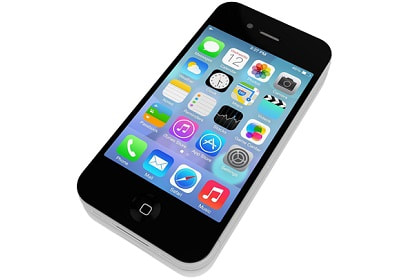Yes, it’s important to focus. But those times when we’re distracted matter just as much as well. Here’s why.
Distraction gets a lot of flak. We are frequently told we need to learn to focus better. We must avoid mind-wandering, multi-tasking or going off on tangents. We’re told: we must stay on track.
But distraction is telling us something. It’s pulling us in another direction for a reason. And that reason is something worth exploring.
Ironically, it’s invariably the thing we should be paying attention to.
What Distraction Is Telling Us
Invariably we struggle to concentrate when it is something we think we should be doing.
When we are living in the world of shoulds, there is always another part of us that actually wants to be doing something else instead.
Stands to reason. We don’t have to force ourselves to focus on things we want to be doing.
The question it brings up, then, is what is it we actually want?
Distraction can often help us figure that out.
Let’s look at some of the common forms of distraction and what they are telling us about what we want:
Social Media
Social media often gets vilified as being public enemy number one when it comes to distraction.
However, anyone in the midst of a flow state will tell you that mindless scrolling is the last thing on their minds.
It doesn’t even occur to them. They have better things to do.
So, if we have a task to do and we keep being drawn to X instead, it is often telling us one of two things: we’re either bored or stressed.
Specifically, the task (or situation) we’re faced with is either too difficult (stressful) or too easy (boring)*
So if we are feeling the magnetic pull of social media, when we should be doing something else, a part of us might be telling us:
- We’re bored at work and want to be challenged by what we’re doing
- We feel stuck in a rut and want to try new things
- We’re drowning in work and want an easier life
- Our jobs feels meaningless and we want purpose
Chatting To Co-Workers
For many of us, our social lives are not as full and exciting as we would like them to be.
We lack friends. We might not live near our families. We might live very close to our families and have nothing to say to them.
So, our co-workers become hyper important to us. Work becomes our social life.
We need social interaction. We need to bond with others. It fulfills a deep need and is an act of self-care.
If we find ourselves chatting to co-workers a little bit too much, it might suggest:
- We have no one to talk to and we want to feel heard
- Conversations feel superficial and we want to connect on a deeper level
- We don’t feel like we have a “tribe” and we want to belong
- Life feels too serious and we want to laugh
Staring Into Space
Most of us spend our days sitting in an office and looking at a screen.
If we find ourselves staring into space, it can simply mean that we need to give our brains a break and let our natural thoughts and feelings flow, free of artificial stimulation.
It can also mean we need to ponder something that’s important – more important in an overall sense than the task we are meant to be focusing on.
Staring out into space can tell us:
- There’s a new perspective our minds want us to embrace, a situation we want to reassess
- There’s an important decision we need to make
- There’s a problem we’re trying to solve
- We have a need to daydream and embrace the possibility of a different life
Listening To Distraction
Many of us try to force ourselves to pay attention to all kinds of things when we really don’t want to.
It takes a lot of energy to do this. As such, it’s incredibly draining. It’s also ignoring our deeper needs.
Our distractions are a chance for us to tap in to what is really going on with us at any given time.
They give us the insight and direction in our lives we can only get when we stop focusing on stuff we “should” be doing.
Because distraction tells us how we really feel:
How we feel about our jobs.
How we feel about our creativity.
How we feel about our life path.
How we feel about our friends and family.
How we feel about ourselves.
So next time you reprimand yourself for zoning out at work or chatting a bit too much to your colleagues, give yourself a break – literally. Your inner self might be doing its very best to bring something vital to your attention.
And if we had to focus on anything in life, that would be it.
* James Clear digs into the phenomena of there being a sweet spot we need to hit, where we hit peak motivation with tasks that are just on the edge of our abilities. He calls it The Goldilocks Rule.





